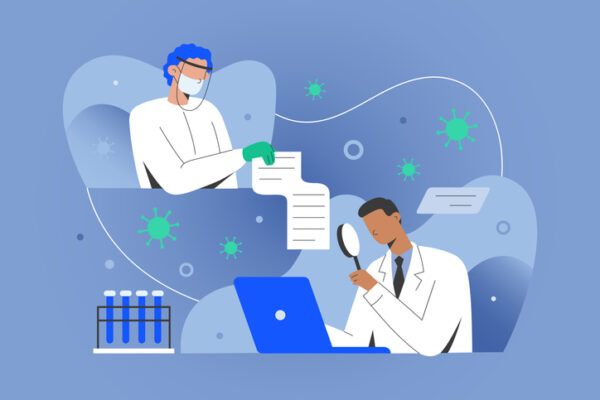
In 2019, to most people, a pandemic was merely a science fiction story, movie thriller or something they learned about in history class. Now, anyone can knowledgeably discuss PPEs, antigens and how to “flatten the curve.” For those of us in biotech, the pandemic also taught us lessons and simultaneously showed us how much more we still need to discover in regards to the biology of diseases and the ways viruses work in the body.
As we continue the fight against Covid-19, it is clear the biotech industry learned a great deal about the science. By acknowledging what we did right, leaning into our humanity, and utilizing the tools we have at our disposal to predict the next global health crisis, we can do more than survive—we can adapt and thrive. But we have to be ready.
So how can the biotech industry prepare for the next pandemic?
First and foremost, we need to utilize the lessons learned from Covid-19 and realize that the next global health threat humanity will face in next 10 years will be a battle with microbes. We also need to observe and comprehend how our bodies and our brains act as a measure of recognizing these new insults.
With this knowledge we can begin to make predictions, take precautions and save lives. Beyond understanding our biology, we need to use all the weapons in our arsenal, and one of our best defenses, consistently proven in the pandemic, is artificial intelligence (AI).
Utilizing AI-powered biotechnology to model what these new attacks are going to look like gives us an upper hand in preparedness. When we know what’s coming, we can work on developing a counterattack, or at least figure out how to get out of the way.

Health Benefit Consultants, Share Your Expert Insights in Our Survey
Share some of the trends you are seeing among your clients across healthcare, including chronic conditions, behavioral health, healthcare navigation, and more.
There will also be fewer biotech companies doing more of the focused work. With inflation on the rise and governments having less money per capita to provide for each citizen, there may be less government funding available for research. Increased mergers and acquisitions in the market also means more consolidation.
Currently, there are about 500 public biotech companies, and that might compress down to the top 300 that have proven they can provide reimbursable products and measurable outcomes. The largest pharmaceutical companies that now stand at 50 may winnow down to 35. The survivors will be fewer in number, but stronger and more focused.
As AI becomes more focused and efficient, and the pharma and biotech industries consolidate to survive, it’s important to also consider and reflect on the successes of the pandemic.
Overall, we’re heading for a change in the biotech industry. We have the tools and experience, the ability to collaborate and evidence that we can solve global problems with our combined intelligence. Yet as we join forces to fight diseases and microbes, it’s critical that we not forget our humanity.
Ksenia Zvezdina, Getty Images
Dr. Niven R. Narain is CEO of ABERG LLC, a clinical-stage, artificial intelligence-powered biotech leveraging its proprietary platform, Interrogative Biology®, to map disease and revolutionize treatments across oncology, neurology and rare diseases.














